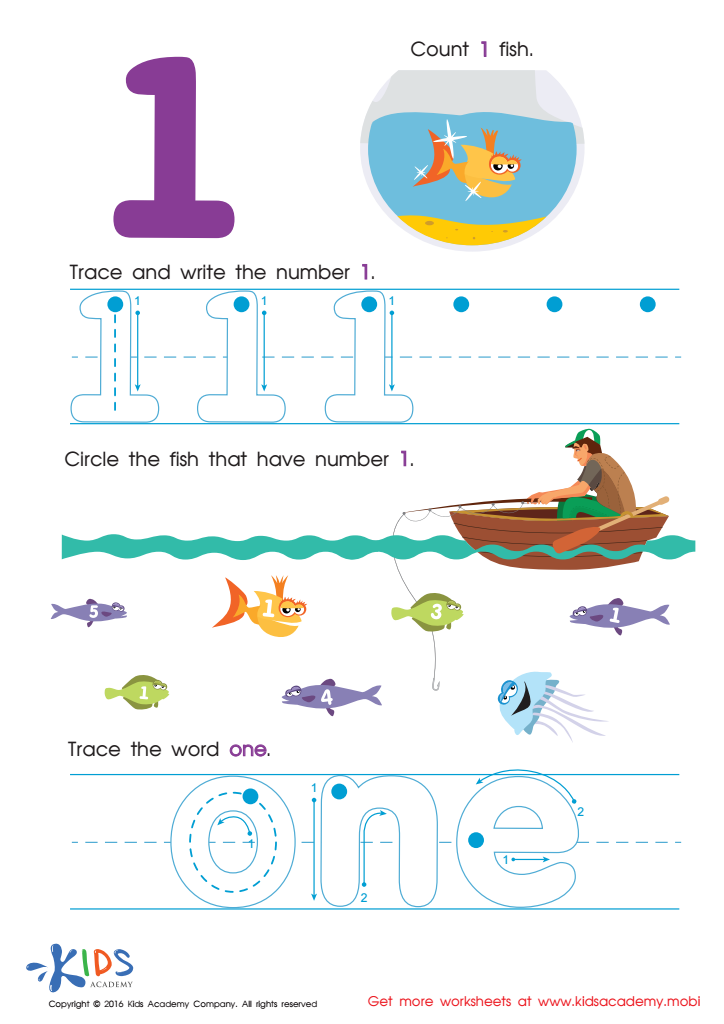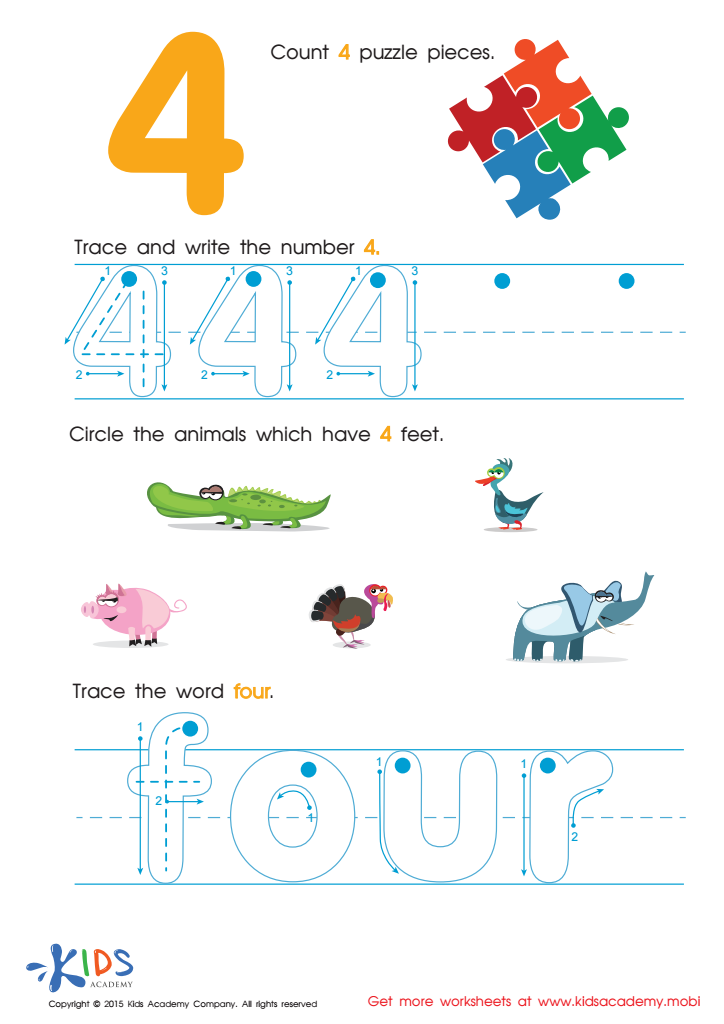Extra Challenge Tracing Numbers worksheets activities for Ages 4-5
2 filtered results
-
From - To


Learning to Write 1 Worksheet


Teaching Children to Write Number 4 Worksheet
Extra Challenge Tracing Numbers worksheets activities are an invaluable resource for children in their early learning stages. These activities are designed not only to familiarize children with numbers but also to enhance their fine motor skills, which are crucial for writing. By engaging in Extra Challenge Tracing Numbers worksheets, children are offered an opportunity to practice and perfect their number formation, which is a foundational skill in mathematics.
The importance of these activities goes beyond simple number recognition. Through the structured yet enjoyable framework of Extra Challenge Tracing Numbers worksheets, children develop a deeper understanding of numerical order and the relationships between numbers. This early exposure lays the groundwork for more complex mathematical concepts and operations that they will encounter as they progress in their education.
Moreover, the repetitive nature of tracing in these worksheets activities aids in muscle memory, allowing children to write numbers more fluently and confidently. This confidence is key to fostering a positive attitude towards learning, especially in subjects that are often perceived as challenging, like math. The sense of accomplishment children feel when they successfully complete these worksheets can motivate them to embrace new learning challenges with enthusiasm.
Additionally, Extra Challenge Tracing Numbers worksheets are designed to cater to different learning speeds and styles. They provide a level of challenge that can be adjusted to meet the individual needs of each child, ensuring that all learners, regardless of their initial abilities, can benefit from these activities. This personalized approach helps prevent frustration and encourages continuous engagement and progress.
In conclusion, Extra Challenge Tracing Numbers worksheets activities are a fundamental tool in early childhood education. They not only support the development of essential numerical and fine motor skills but also play a significant role in building a solid foundation for future learning. By incorporating these activities into their learning routine, children are set on a path towards academic success and a lifelong appreciation for mathematics.
 Assign to My Students
Assign to My Students





.jpg)
.jpg)








